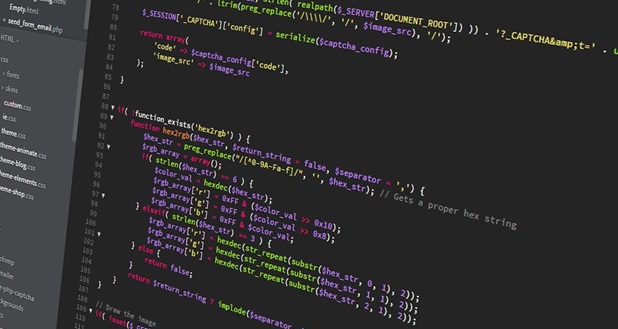For developers, all programming languages have their positives and negatives. Many programmers only work with the languages they are most familiar with. The choice of which one to use also comes down to a few factors; market demand, interest, or intent. Game developers will spring for Lua or C++. Web developers will be looking at PHP and JavaScript.
But what might be overlooked by developers is another crucial element of computer programming – security. The security that a programming language can provide is usually considered after it has already been chosen. Of course, by this point, it’s already too late.

In the past few years, considerable research has come out on the vulnerability assessments of the most well-known programming languages. The research has been provided by the open source security management company Whitesource. Based on this research and more of our own, we have compiled a list of the five most secure programming languages.
The 5 Best
RUBY
While it has the least reported vulnerabilities of the seven most used languages, it is only by a marginal lead. The language has experienced a consistent pattern of rising and falling over the last ten years. However, a steady decrease in its popularity may be a reason for its low vulnerability. Its primary Common Weakness Enumeration (CWE) – which is a list of open source vulnerability issues – are Cross Site Scripting (XSS) vulnerabilities.
C++
C++ technically has the second lowest percent of vulnerabilities amongst the languages. But it also has experienced a 36% increase of high severity vulnerabilities since 2014. This increase is the highest amongst the seven languages. It suffers the same vulnerabilities as C, which are a majority of buffer errors.

PYTHON
Python has gained considerable popularity in recent years. The good news is that its levels of security vulnerability have steadily decreased since its peak in 2015. In terms of high severity vulnerabilities, it sat at an average of only 15% over the past five years, the lowest of all the languages. The CWEs that affect Python most are input validation, cross-site scripting, and information leak/disclosure.
JAVASCRIPT
JavaScript is possibly the most used language around the world. However, over the last ten years, JavaScript has seen a steady increase in vulnerabilities consistent with its growth in popularity. It has the second highest high vulnerability rating at 31% on average in the past five years. Its most common CWEs are cryptographic issues and path traversal.
JAVA
The vulnerability of Java has also been increasing consistently. According to statistics, the language’s vulnerability rate has increased two-fold between 2017 and 2018. Fortunately, it has a high severity vulnerability of only 19% on average, a number which has been on a steady decline over the last four years.
Extra: Most Vulnerable Programming Languages
Of course, we couldn’t mention the most secure programming languages without exploring the least secure.

C
Of the seven, C has by far the most vulnerability issues, with over 50% of reported open source vulnerability issues. This result is understandable as it is the oldest and formerly the most widely used of all programming languages. It’s basically the “mother tongue” of object-oriented languages such as C++ and Javascript. It does, however, have a relatively low rate of high vulnerability issues.
PHP
The second most vulnerable is PHP, with the highest increase of vulnerabilities in 2017. It is the only language with the CWE of SQL Injection, with its most common vulnerability being XSS.
What To Do When All Is Lost
Safety is one of the top priorities in modern businesses, and secure data destruction is a big part of that. Ensuring code security is challenging. But it’s vital to ensure that the base of all of your projects is as secure as possible.
Remember that even in the event of a security breach in your program, there are ways to protect your data and destroy sensitive information. Companies like AGR can help if it gets out of hand. Disposing of and properly recycling your computer parts will ensure your safety.
So in a nutshell, many developers would like to claim that some languages are more prone to security failure than others. The truth is that each language has different strengths and weaknesses. These will change a program’s vulnerability depending on how the code is used. It’s impossible to say which is the most secure, so be wise in your decision making.
loading...
loading...
